 A wonderful way to prepare for Lent! This year’s theme – Becoming a Space for God… A Journey Into the Heart of Life – invites us to travel down new avenues of seeing and hearing to experience the grace in everyday life. Through reflection, prayer, sharing, with a fabulous potluck, we’ll travel this road together every first Tuesday evening. Join us this Tuesday at 6:30 pm in the Social Hall – bring a favorite winter recipe! All are Welcome! Moderator: Sr. Evelyn Ronan, SND
A wonderful way to prepare for Lent! This year’s theme – Becoming a Space for God… A Journey Into the Heart of Life – invites us to travel down new avenues of seeing and hearing to experience the grace in everyday life. Through reflection, prayer, sharing, with a fabulous potluck, we’ll travel this road together every first Tuesday evening. Join us this Tuesday at 6:30 pm in the Social Hall – bring a favorite winter recipe! All are Welcome! Moderator: Sr. Evelyn Ronan, SND
Category Archives: Adult Faith Formation
Tuesday, March 4 at 6:30pm: Evening for Women
Comments Off on Tuesday, March 4 at 6:30pm: Evening for Women
Posted in Adult Faith Formation
Wednesday, February 26 at 7pm: AFFC Lecture with Prof. Jeff Bloechel – “The Jesus Prayer”
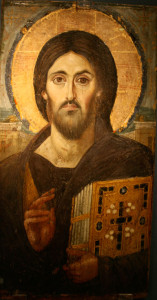 Please join us in the Social Hall on Wednesday, February 26 at 7pm for a lecture on The Jesus Prayer with Jeff Bloechel, Associate Professor of Philosophy at Boston College. From Prof. Bloechel: “The ‘Jesus Prayer’ is distinguished by its simplicity (in Greek it is only five words long) and by its age (explicit references date to the 5th century). It is generally understood as a prayer by which the mind is taken into the heart, where God’s love touches us most deeply. In modern times, the Prayer was revived in Russia and brought to Mt. Athos, where it has become the center of an entire spirituality for many Greek Orthodox monks. My own encounter with the Prayer was shaped by three visits to Mt. Athos, and so I will include some discussion of the Holy Mountain in my thoughts on the Prayer.”
Please join us in the Social Hall on Wednesday, February 26 at 7pm for a lecture on The Jesus Prayer with Jeff Bloechel, Associate Professor of Philosophy at Boston College. From Prof. Bloechel: “The ‘Jesus Prayer’ is distinguished by its simplicity (in Greek it is only five words long) and by its age (explicit references date to the 5th century). It is generally understood as a prayer by which the mind is taken into the heart, where God’s love touches us most deeply. In modern times, the Prayer was revived in Russia and brought to Mt. Athos, where it has become the center of an entire spirituality for many Greek Orthodox monks. My own encounter with the Prayer was shaped by three visits to Mt. Athos, and so I will include some discussion of the Holy Mountain in my thoughts on the Prayer.”
Comments Off on Wednesday, February 26 at 7pm: AFFC Lecture with Prof. Jeff Bloechel – “The Jesus Prayer”
Posted in Adult Faith Formation, Important Announcements, Special Events
Tuesday, February 4 at 6:30pm: Evening for Women
 This year’s theme – Becoming a Space for God… A Journey Into the Heart of Life – invites us to travel down new avenues of seeing and hearing to experience the grace in everyday life. Through reflection, prayer, sharing, with a fabulous potluck, we’ll travel this road together every first Tuesday evening. Join us at 6:30 pm in the Social Hall – bring a favorite winter recipe! All are Welcome! Moderator: Sr. Evelyn Ronan, SND
This year’s theme – Becoming a Space for God… A Journey Into the Heart of Life – invites us to travel down new avenues of seeing and hearing to experience the grace in everyday life. Through reflection, prayer, sharing, with a fabulous potluck, we’ll travel this road together every first Tuesday evening. Join us at 6:30 pm in the Social Hall – bring a favorite winter recipe! All are Welcome! Moderator: Sr. Evelyn Ronan, SND
Comments Off on Tuesday, February 4 at 6:30pm: Evening for Women
Posted in Adult Faith Formation
February 2: News and Events from Adult Faith Formation
 FAITH MATTERS: Have you ever wondered about ORDINARY TIME? What is Ordinary Time? Why is it different from Advent/Christmas and Lent/Easter? What do we celebrate during this time? What is ordinariness and is this a good thing? For the month of February, the Adult Faith Formation Commission is discussing The Specialness of “Ordinary Time”. Please visit our blog page to find reflections written by parishioners as well as links to lots of great information. Choose the “like” option on Facebook to receive regular updates on our monthly theme!
FAITH MATTERS: Have you ever wondered about ORDINARY TIME? What is Ordinary Time? Why is it different from Advent/Christmas and Lent/Easter? What do we celebrate during this time? What is ordinariness and is this a good thing? For the month of February, the Adult Faith Formation Commission is discussing The Specialness of “Ordinary Time”. Please visit our blog page to find reflections written by parishioners as well as links to lots of great information. Choose the “like” option on Facebook to receive regular updates on our monthly theme!
 Tuesday, February 4 – Evening for Women
Tuesday, February 4 – Evening for Women
6:30pm, Chapel/Social Hall
This year’s theme – Becoming a Space for God… A Journey Into the Heart of Life – invites us to travel down new avenues of seeing and hearing to experience the grace in everyday life. Through reflection, prayer, sharing, with a fabulous potluck, we’ll travel this road together every first Tuesday evening. Join us at 6:30pm in the Social Hall – bring a favorite winter recipe! All are Welcome! Moderator: Sr. Evelyn Ronan, SND
 Thursday, February 26 – Lecture: The Jesus Prayer
Thursday, February 26 – Lecture: The Jesus Prayer
7:00pm, Social Hall
Jeff Bloechel, Associate Professor at Boston College
From Prof. Bloechel: “The ‘Jesus Prayer’ is distinguished by its simplicity (in Greek it is only five words long) and by its age (explicit references date to the 5th century). It is generally understood as a prayer by which the mind is taken into the heart, where God’s love touches us most deeply. In modern times, the Prayer was revived in Russia and brought to Mt. Athos, where it has become the center of an entire spirituality for many Greek Orthodox monks. My own encounter with the Prayer was shaped by three visits to Mt. Athos, and so I will include some discussion of the Holy Mountain in my thoughts on the Prayer.”
Comments Off on February 2: News and Events from Adult Faith Formation
Posted in Adult Faith Formation, Important Announcements
FAITH MATTERS: The Specialness of “Ordinary Time”
 For most of my life, seeing ‘Ordinary Time’ Sundays between Christmas Season (ending with The Baptism of the Lord) and Ash Wednesday, and then from Trinity Sunday all the way through to Advent, made me feel really dismal. It meant that there was nothing to celebrate or prepare for! I love having a focus to my time and I interpreted ‘Ordinary Time’ as unfocused, lost time. The word ‘ordinary’ sounded dull, lifeless, and boring to me. ‘High days and Holidays’ were the times I felt alive in Church and I enjoyed having a purpose to the days, even if I was ‘giving up’ chocolate for Lent.
For most of my life, seeing ‘Ordinary Time’ Sundays between Christmas Season (ending with The Baptism of the Lord) and Ash Wednesday, and then from Trinity Sunday all the way through to Advent, made me feel really dismal. It meant that there was nothing to celebrate or prepare for! I love having a focus to my time and I interpreted ‘Ordinary Time’ as unfocused, lost time. The word ‘ordinary’ sounded dull, lifeless, and boring to me. ‘High days and Holidays’ were the times I felt alive in Church and I enjoyed having a purpose to the days, even if I was ‘giving up’ chocolate for Lent.
So why does the Catholic Church designate so many weeks of the year as ‘Ordinary’? The Episcopal Church celebrates the Advent, Christmas, Lenten and Easter Seasons but also has the Epiphany Season which continues from January 6th through to Ash Wednesday, and the Season after Pentecost which runs from Trinity Sunday to Advent. To my mind that sounded more ‘up-beat’, more celebrating, less ordinary.
Then, the Holy Spirit must have inspired me! I realized that some humility was in order, so I explored what the Catholic Church actually meant by using the word ‘Ordinary’. What I discovered was filled with the Holy Spirit.
Let me explain. To begin, I realized that each occasion upon which Ordinary Time begins it follows a particular revelation of God. The first follows the Season of Epiphany (which includes the Visit of the Magi, the Wedding Feast at Cana, and the Baptism of the Lord) when Jesus, the Second Person of the Blessed Trinity, is revealed to the world. The second follows the coming of the Holy Spirit at Pentecost, the Third Person of the Blessed Trinity. The full revelation of the Trinity is celebrated on Trinity Sunday and then ‘Ordinary Time’ begins.
Each revealing of a Person of the Trinity takes time for us to accept into our deepest selves; we slowly learn to welcome God into our souls and become aware of ‘God Within’. The Catholic Church gives us Ordinary Time as a time in which to recognize this truth, accept it and choose to say ‘YES’ to God as the Lord of our Life. As a very dear friend of mine (an 80 year old nun) says, ‘It is like inviting God to take over the steering wheel of my life, recognizing that I am now the passenger and willingly accepting whatever happens next!’
In the Gospel of Luke (1:26-38), Mary says ‘YES’ to God after some perplexity, pondering and a moment of questioning; then the Holy Spirit overshadows her and she conceives Jesus, the Son of God. Unfortunately, for most of the rest of us, it takes a lot longer for us to overcome our layers of resistance to handing over our perceived independence (similar to layers of an onion is how I imagine our layering of self protection and fear) so as to rejoice in our dependence on God. We need all the Ordinary Time we can get!
So how do we live our life ‘aglow with the Spirit’ as St. Paul describes our new existence filled with the Spirit? He says, ‘serve the Lord, rejoice in your hope, be patient in tribulation, be constant in prayer, contribute to the needs of the saints, practice hospitality, bless those who persecute you, rejoice with those who rejoice, weep with those who weep, live in harmony with one another, do not be haughty but associate with the lowly, never be conceited, repay no one with evil but take thought for what is noble in the sight of all’ (Romans 12:11-17).
This is a lot to manage, but, God, understanding our fear of losing control, leads us gently into oneness with the Spirit; it is the work of our lifetime. Actually Pierre Teilhard de Chardin describes best what Ordinary Time is all about:
Above all, trust in the slow work of God. We are quite naturally impatient in everything to reach the end without delay. We should like to skip the intermediate stages. We are impatient of being on the way to something unknown, something new. And yet it is the law of all progress that it is made by passing through some stages of instability—and that it may take a very long time.
And so I think it is with you; your ideas mature gradually—let them grow; let them shape themselves, without undue haste. Don’t try to force them on, as though you could be today what time (that is to say, grace and circumstances acting on your own good will) will make of you tomorrow.
Only God could say what this new spirit gradually forming within you will be. Give Our Lord the benefit of believing that his hand is leading you, and accept the anxiety of feeling yourself in suspense and incomplete (Pierre Teilhard de Chardin, Hearts on Fire).
Comments Off on FAITH MATTERS: The Specialness of “Ordinary Time”
Posted in Adult Faith Formation, AFFC-blog, Important Announcements
January 26: News and Events from the AFFC
 FAITH MATTERS: For the month of January, the Adult Faith Formation Commission is discussing The Childhood of Jesus. Please visit our blog page to find reflections written by parishioners as well as links to lots of great information. Choose the “like” option on Facebook to receive regular updates on our monthly theme!
FAITH MATTERS: For the month of January, the Adult Faith Formation Commission is discussing The Childhood of Jesus. Please visit our blog page to find reflections written by parishioners as well as links to lots of great information. Choose the “like” option on Facebook to receive regular updates on our monthly theme!
 Tuesday, February 4 – Evening for Women
Tuesday, February 4 – Evening for Women
6:30pm, Chapel/Social Hall
This year’s theme – Becoming a Space for God… A Journey Into the Heart of Life – invites us to travel down new avenues of seeing and hearing to experience the grace in everyday life. Through reflection, prayer, sharing, with a fabulous potluck, we’ll travel this road together every first Tuesday evening. Join us at 6:30pm in the Social Hall – bring a favorite winter recipe! All are Welcome! Moderator: Sr. Evelyn Ronan, SND
 Thursday, February 26 – Lecture: The Jesus Prayer
Thursday, February 26 – Lecture: The Jesus Prayer
7:00pm, Social Hall
Jeff Bloechel, Associate Professor at Boston College
From Prof. Bloechel: “The ‘Jesus Prayer’ is distinguished by its simplicity (in Greek it is only five words long) and by its age (explicit references date to the 5th century). It is generally understood as a prayer by which the mind is taken into the heart, where God’s love touches us most deeply. In modern times, the Prayer was revived in Russia and brought to Mt. Athos, where it has become the center of an entire spirituality for many Greek Orthodox monks. My own encounter with the Prayer was shaped by three visits to Mt. Athos, and so I will include some discussion of the Holy Mountain in my thoughts on the Prayer.”
Comments Off on January 26: News and Events from the AFFC
Posted in Adult Faith Formation
January 12: News from the AFFC
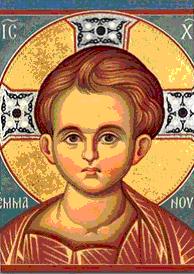 For the month of January, the Adult Faith Formation Commission is discussing The Childhood of Jesus on our blog, FAITH MATTERS. Please visit our website at www.stjohnwellesley.org/affc to find reflections written by parishioners as well as links to lots of great information. Choose the “like” option on Facebook to receive regular updates on our monthly theme!
For the month of January, the Adult Faith Formation Commission is discussing The Childhood of Jesus on our blog, FAITH MATTERS. Please visit our website at www.stjohnwellesley.org/affc to find reflections written by parishioners as well as links to lots of great information. Choose the “like” option on Facebook to receive regular updates on our monthly theme!
Comments Off on January 12: News from the AFFC
Posted in Adult Faith Formation
FAITH MATTERS: Who Was the Baby Jesus, Really?
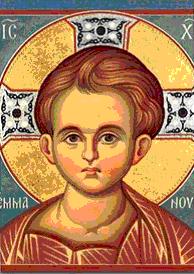 As a child, I had serious issues with the Baby Jesus! Every time I failed in some way, I would be reminded that either The Baby Jesus would never have disappointed His mother in that way! Consequently, I had no problem with the divine nature of Jesus but His human nature was a major stumbling block.
As a child, I had serious issues with the Baby Jesus! Every time I failed in some way, I would be reminded that either The Baby Jesus would never have disappointed His mother in that way! Consequently, I had no problem with the divine nature of Jesus but His human nature was a major stumbling block.
Later, as I read a bit more, I realized that I was not alone struggling with this faith challenge. It appeared that much ‘pious’ literature presented the young Jesus as a miracle worker, generally doing good but occasionally using His ‘powers’ to punish naughty children. Even when I was young I thought Jesus was out of line speaking to His parents the way He did when they found Him in discussion with elders in the Temple!
Why do we humans have such difficulty accepting Jesus as both truly God and truly Human? Perhaps it is the word ‘and’ that is part of the problem. As humans we like to categorize; differentiation into separate groupings feels comfortable, feels clever. We like to put things (and people) where they belong, in their appropriate box. Perhaps it is also that, as humans, we are very conscious of our deficiencies, our contradictions. It seems wrong to associate our weakness with Jesus. After all, Jesus is truly God and God is ‘perfect’, how can Jesus be both our imperfection and God’s perfection in one person?
But it seems to me that humans were never meant to be ‘stand alone’, self-sufficient. Perhaps humans were created to be ‘sufficient in God’s sufficiency’? Perhaps humans were created, as we are, so that the light of God shines through our insufficiency? Interestingly, St. Teresa of Avila talked about God having no hands but ours and no feet but ours. Our purpose on this earth, as exemplified by Jesus, may be to BE LOVE to each other, making God ‘real’ for each other. We are physical beings who need love and caring to be expressed through the physical. God is ‘all in all’ but what does that mean when you are alone, hungry, frightened? It means someone giving you a hug, feeding you, clothing you, giving you space in their life, in their heart. Perhaps we should accept our weakness, relying on God’s Mercy, dependent on God’s Forgiveness, and concentrate our energies on reaching out to others with the love of God that will fill us to the very brim, if we let it!
So what about the Baby Jesus? I would suggest that Jesus was a child like any other, needing love and care, support and boundaries. He grew up learning all the lessons the rest of us need to learn, feeling the same hurts, joys, embarrassments, loneliness etc. However, I suspect that, when Jesus felt love, He passed it on; when He was joyful, He shared the joy; when He had enough and He saw others in want, he shared what He had and it was enough for all. He received with open hands from God and He handed on to His brothers and sisters with open hands. We are all called to do the same.
Comments Off on FAITH MATTERS: Who Was the Baby Jesus, Really?
Posted in Adult Faith Formation, AFFC-blog
FAITH MATTERS: The Christmas Story (As Told by a Child)
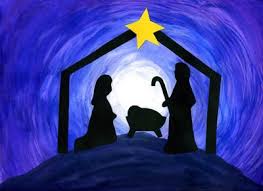 “Well, the Father, the Son and the Holy Spirit had had their dinner, and were looking at the world they’d made, and they saw how messed up it was. They were a bit depressed.
“Well, the Father, the Son and the Holy Spirit had had their dinner, and were looking at the world they’d made, and they saw how messed up it was. They were a bit depressed.
‘What will we do now?’ said the Father. The Spirit thought for a bit and said: ‘Well, we tried clearing out all the bad people – remember the Flood? But it didn’t work, and we lost a lot of people and animals that time.’ The Son said, ‘Yes, and I remember we sent the prophets to tell the people to stop being bad, and that didn’t work either – they got it in the neck! We also tried punishing them to make them pay attention – remember we shipped them all off to Babylon? That went fine for a bit, but too many of them became backsliders pretty soon after getting back.’
The Father said, ‘You make it all feel pretty hopeless, but we can’t let them drown in their misery. After all, we made them in our own image and likeness. I want them to be happy, like us. I’m determined to save them, no matter what the price.’
There was more silence, and then the Son got all fired up. He said: ‘Suppose I joined in with them and became one of them? I’d show them how to live properly. I’d go in disguise of course, not to frighten them off. It would take them a while to guess who I am. I’d lead them back home to here!’
The Father said, ‘Son, don’t get carried away with this idea: it could cost you your life! And if they killed you it would break my heart.’
There was more silence, and then the Spirit coughed, as shy people do, and said: ‘I think the Son is right, and I’ll be with him if he’s willing to do it. You know how infections work with them? Well, this will be like a good infection! It will be an inside job. I know it will take a good while to get around everyone, but I believe we can!’
So they got in touch with Mary and she was great. She just said, ‘Yes, I’ll help any way I can’. So Jesus was born on Christmas Day ‘a long time ago, in Bethlehem’.”
Comments Off on FAITH MATTERS: The Christmas Story (As Told by a Child)
Posted in Adult Faith Formation, AFFC-blog
FAITH MATTERS: The Challenge of Christmas
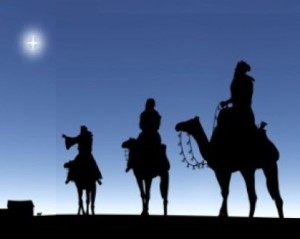 We normally would think that any Christmas challenge would be about Christmas shopping and navigating the stresses of the season, whilst remaining sane. Interestingly, the poet T.S. Elliot, in his poem ‘The Journey of the Magi’, understood the challenge differently.
We normally would think that any Christmas challenge would be about Christmas shopping and navigating the stresses of the season, whilst remaining sane. Interestingly, the poet T.S. Elliot, in his poem ‘The Journey of the Magi’, understood the challenge differently.
In this poem the three wise men set off on a journey to find something special but they don’t know quite what that will be! Basically, they will know it when they see it! They follow a star but it isn’t an easy journey at ‘just the worst time of year’, ‘with the voices singing in our ears, saying that this was all folly’. Finally when they find what they are seeking there is no trumpet fanfare, rather, ‘Finding the place; it was (you may say) satisfactory.’ That word ‘satisfactory’ is so unexpected, so anticlimactic, that we recoil as if at the sounding of a death bell. Indeed in the next stanza, the poet has the wise men asking ‘were we lead all that way for Birth or Death?’ Others, wiser than I, have commented that in every joy there is a shadow portending sorrow and in every sorrow there exists a promise of joy! The wise men certainly recognized a birth had taken place but the poet writes on their behalf, ‘I have seen birth and death, But had thought they were different; this Birth was Hard and bitter agony for us, like Death, our death.’ I am reminded of Henry Ward Beecher in his Proverbs from Plymouth Pulpit, saying ‘In this world, full often, our joys are only the tender shadows which our sorrows cast.’
The birth of the Christ Child, their seeing the baby Jesus, proverbially took the rug from under them! Their preconceived view of how life is meant to be, turned to dust. Their rational view and accepted assumptions were swept away. Their sense of themselves as adults, humans in control of their world and life, was clearly nonsense! They suddenly realized that they had got it all wrong and such a paradigm shift confronted them with the knowledge that their world could never be the same again. They were changed, hence, they were ‘no longer at home here, in the old dispensation’. They understood at the very core of their being what the birth of this child meant; they had ‘seen God and lived’. and just as Jacob was changed utterly by his experience so are all who come face to face with God. Mother Theresa of Calcutta experienced this when she looked out the window of a train in India and recognized Christ in the face of a beggar on a railway platform; she went from teaching the children of the wealth as a Loreto sister to founding her own order and living her life dedicated to helping the poorest of the poor. ‘Be it done unto me according to Your Word’ may soon sweet, but Death to ‘self’ means Life subject to God’s Will, and we aren’t in control of where that will lead!!!
The experience of the wise men is the Christmas Challenge for us. By seeing the Christmas manger scene as cute, something for the children to enjoy, we tame it. We rob it of its life or death significance. If it is a cute religious decoration, then we are in control. We can safely continue our lives keeping God at arm’s length and don’t have to answer the hard questions. Understandable really! Who wants to meet God and nothing ever be the same again? Who wants to live their life as an outsider among their own family, in their own home, in their own culture? Once we realize that we were never created to be self-sufficient but rather were designed to be sufficient in God’s sufficiency (2Cor3:5, Phil 4:19, Col 2:2-3) then truly we are part of the Body of Christ. If you want to live the life God meant you to live then you have to accept that ‘What you want is profoundly expensive’ as the Indian mystic Lalla told us. It will cost you the life you wanted for yourself and put you into the hands of the living God. To ‘Trust in God, and rely not your own understanding’ as Proverbs 3:5 tells us is the true Challenge of Christmas, but the cost is high, as T.S. Elliot tells us in the last line of ‘The Journey of the Magi’, it will leave us saying ‘I should be glad of another death’.
Comments Off on FAITH MATTERS: The Challenge of Christmas
Posted in Adult Faith Formation, AFFC-blog

